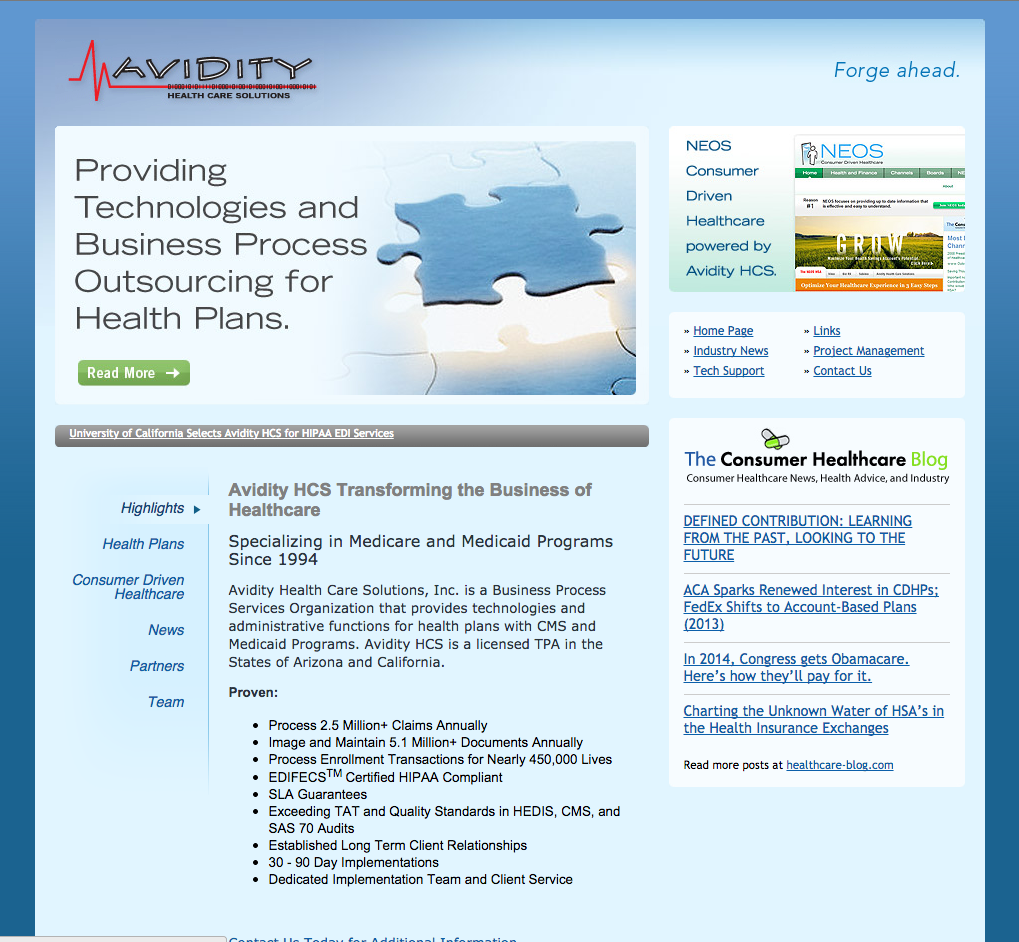A: Beginning with tax year 2007, an individual or family covered under an HDHP in a month other than January, may make a full HSA contribution for the year. So, even if you become eligible and enroll in an HDHP in December of 2007, you can still make an HSA contribution for 2007 as if you had been enrolled in the HDHP for all of 2007.
However, if you don’t remain an eligible individual in accordance with “The 12 Month Rule,” the amount of the distribution and contribution will be included in your gross income. “The 12 Month Rule,” or testing period, is the period beginning with the month of the contribution and ending on the last day of the 12th month following such month. The amount will be included for the taxable year of the first day during the testing period that the individual is not an eligible individual. A 10 percent additional tax also applies to the amount included.
Here is an example:
Let’s say that you enroll in an HDHP in December of 2007 and are otherwise an eligible individual in that month. For sake of the example assume that you are not an eligible individual in any other month in 2007. You could make an HSA contribution for 2007 as if you had been enrolled in the HDHP for all of 2007. In addition, if you ceased to be an eligible individual (e.g., if you stopped being covered under an HDHP) in June 2008, an amount equal to the HSA deduction attributable to treating you as an eligible individual for January through November 2007 would be included in your income in 2008.
A: No. HSAs are individual accounts. Each spouse who is an eligible individual and wants to make contributions to an HSA must open a separate HSA. In cases where catch-up contributions are involved, only the individual that meets the age requirements can contribute this amount.
For example, a husband and wife are covered under an HDHP and only one HSA is opened with the husband as the account owner. If the wife qualifies for the catch-up contribution, her catch-up contribution cannot be placed into the husband’s account. The wife would have to open an HSA to make her catch-up contribution.
A: An individual’s contributions are deductible for federal income tax purposes, even if the account beneficiary does not itemize.
Employees’ contributions to an HSA are considered wages, and therefore are subject to FICA taxes. Self-employed individuals are not subject to FICA taxes, but pay self-employment tax instead. An HSA contribution does not reduce self-employment tax.
Employer contributions are made on a pre-tax basis and are not subject to employment taxes (e.g. FICA).
Investment earnings accumulate tax-deferred, and if used for qualified medical expenses are received federally income tax-free.
A: See the following references for guidelines or consult your financial advisor.
- Qualified medical expenses as defined in the Internal Revenue Service Code (See IRS Publication 502: Medical and Dental Expenses)
- The Department of the Treasury
A: Generally, health insurance premiums are not qualified medical expenses except for the following:
- COBRA Insurance
- Qualified long term care insurance (subject to the dollar limits in Publications 502)
- Health insurance premiums for individuals receiving unemployment compensation
- For Individuals age 65 or older, Medicare and retiree health insurance premiums (except for Medicare Supplement policy premiums)

PHOENIX, AZ — Avidity Health Care Solutions, Inc. announced today an upgrade to its Provider Interactive Web Service. The upgrade accommodates Medicare Advantage Plan requirements for member eligibility and inquiry services for providers.
Continue Reading

PHOENIX, AZ — Avidity Health Care Solutions, Inc. announced today an upgrade to its CMS Fee Schedule Pricer Web Service. The Avidity CMS Fee Schedule Pricing Web Service is a component of Health Care Interactive Services. The pricer is online and a single point for a user to accurately price RBRVS for every state. The pricer also calculates limiting fees for providers not accepting assignment and custom percentages off the schedule.
Continue Reading

PHOENIX, AZ — Avidity Health Care Solutions, Inc. announced today an upgrade to its Provider Interactive Services.
Continue Reading

NEOS consumers are empowered with real time financial information enabling them to self-direct their healthcare. Electronic linkage to financial institutions provides consumers with the flexibility to pay for qualified medical expenses.
Phoenix, AZ — NEOS Consumer Driven Healthcare launches version 2.1 of its employer self service HSA Management Module. NEOS CDH self service enables employers to easily manage the entire process of employee health savings account setup, plan creation, funding, and reporting, at a fraction of the administrative costs.
Continue Reading

PHOENIX, AZ — Avidity Health Care Solutions, Inc. announced today that The University of California has selected Avidity HCS, Inc’s Health Care Interactive (HCI) solution for its HIPAA translation services and clearinghouse functions.
Continue Reading

Avidity Health Care Solutions, Inc. launches new website. We have updated the look, feel and content of the Avidity HCS site. The new site reflects changes in Avidity technologies, Scope of Business and highlights recent application upgrades. Clients are now able to access their projects and collaborate online.
For specific descriptions of what is covered under each of these areas, please see IRS Publication 502 Medical and Dental Expenses, available online under “Forms and Publications” at www.irs.gov or by calling 1-800-829-3676.
The following is a list of some items that you cannot include in figuring out your medical expense deduction.
- Babysitting/Childcare for a Normal Healthy Baby
- Controlled Substances
- Cosmetic Surgery
- Dancing Lessons
- Diaper Service
- Hair Removal
- FSA (Flexible Spending Account)
- Funeral Expenses
- Future Medical Expenses
- Hair Transplant
- Health Club Dues
- Health Coverage Tax Credit
- Health Savings Account (Contributions are deducted separately)
- Household Help
- Illegal Operations and Treatment
- Insurance Premiums
- Maternity Clothes
- MSA (Medical Savings Account)
- Nutritional Supplements
- Presonal Use Items
- Teeth Whitening
- Weight Loss Program

